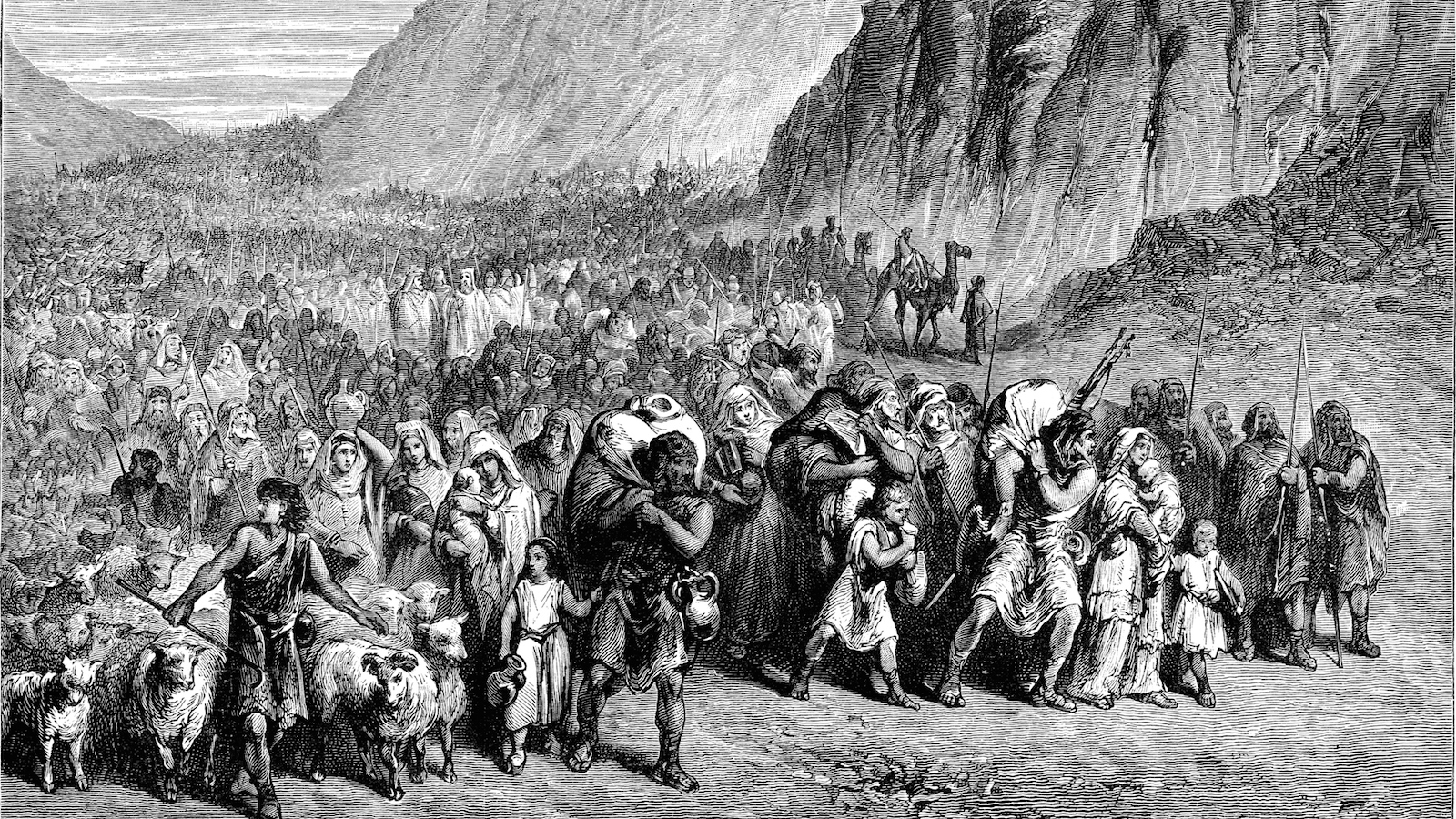Commentary on Parashat Vaera, Exodus 6:2-9:35
After Moses earns harsh rebuke from his people when he acts on God’s instruction, Moses complains to God, “Why did you send me to make this nation’s life more miserable?” (Exodus 5:22) God answers:
(1) God spoke to Moses saying: Now you will see what I shall do to Pharaoh. For with a strong hand I will send them forth and with a strong hand I will banish them from his land.
(2) God spoke to Moses, he said to him: I am YHWH.
(3) I was seen by Abraham, by Isaac, and by Jacob as God Shaddai, but (by) my name YHWH I was not known to them.
(4) I also established my covenant with them, to give them the land of Canaan, the land of their sojournings, where they had sojourned.
(5) And I have also heard the moaning of the Children of Israel, whom Egypt is holding-in-servitude, and I have called-to-mind my covenant.
(6) Therefore, say to the children of Israel: I am YHWH; I will bring you out from beneath the burdens of Egypt, I will rescue you from servitude to them, I will redeem you with an outstretched arm, with great (acts of) judgment.
Your Torah Navigator
1. Does God give a direct answer to Moses’s question?
2. What was the purpose of Moses’s previous attempt to liberate the people?
3. Does God ever explain why Moses didn’t succeed in this mission?
With your help, My Jewish Learning can provide endless opportunities for learning, connection and discovery.
4. If you were Moses, would you require an explanation or would you accept God’s promise to see what will happen next?
A Word
Implicit in God’s response is a rebuke for Moses’s impatience. Your forefathers, God says, received a pale reflection of My presence while you know the essence of My Name, for I didn’t reveal My essential Name to them, but only to you. Nevertheless, they understood that they were engaged in a journey while you, Moses, at the first adverse moment are ready to question the enterprise.
Play it through, Moses. Liberation is fraught with detours, adversity and struggle. The forefathers did not contend with me even though they never knew me as intimately as you do.
Knowledge of God requires the trust that each struggle has purpose and that is why Rashi says: Note that it does not say, “I didn’t announce [My Name], but that this Name was not known to them, i.e., the attributes of My true essence were not known to them. What is My true essence? That ultimately whatever I promise will be fulfilled. For whatever I promised the forefathers was not fulfilled ultimately in their lifetime.”
But Moses knew God’s essence, which meant that whatever God promised would indeed happen while Moses was alive. Moses’s mission was to keep the faith and be confident that his mission was to be God’s messenger, and thus ultimate success was guaranteed.
Provided by Hillel’s Joseph Meyerhoff Center for Jewish Learning, which creates educational resources for Jewish organizations on college campuses.
Torah
Pronunced: TORE-uh, Origin: Hebrew, the Five Books of Moses.



